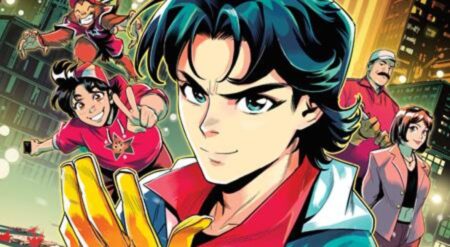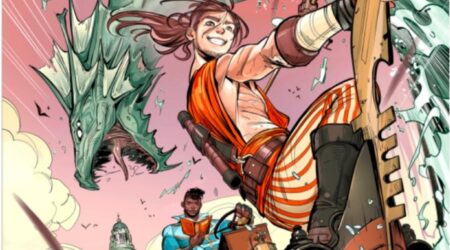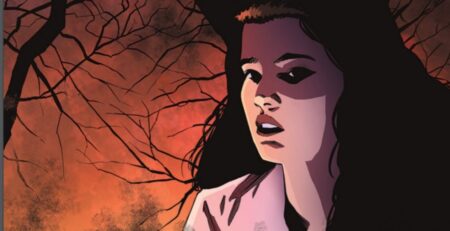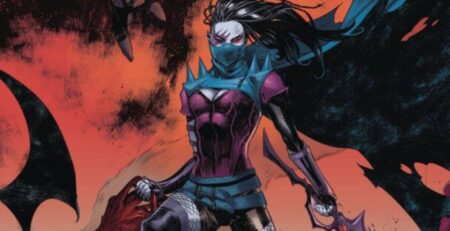
Auto-biographical comics remain a steadfast favorite of mine in the indie and alternative realms of comics. Ode to Keisha, written by Jamila Rowser (Wash Day), illustrated by Trinidad Escobar (Drawing Power, Be Gay, Do Comics), and edited by Marly Pierre-Louis, is an eighteen-page autobiographical comic about friendship, racism, and identity. Black Josei Press is an award-winning indie comic book publishing company focused on celebrating comics made by and for women and non-binary people of color. This comic was originally created and published by Versal for their VERSO/subscription box and is now available for readers who love reading about Black girls everywhere, around the globe.
Ode to Keisha briefly but artfully explores the friendship of two five-year-old Black girls in the early ’90s who meet in kindergarten in the Netherlands. Writer Rowser speaks about her unique experience of being a brown-skinned girl born in England and then residing in an entirely different country whose language she didn’t even speak. At that time, there were no other children who looked like her, and then Keisha, another little Black girl, joined her class!
The comic oh so sweetly showcases pages of the two girls noticing each other, first speaking, and the places they visit around the school like the swing set and the best place to look at tulips when they bloom. The black and white format of the artwork makes the ordinary simply magical: the two little Black girls on the page are emphasized on the page by their ponytails, complete with barrettes and balls. Add in details like the book cover of beloved childhood book classic Mufaro’s Beautiful Daughters and the “brown/cafe/brun” colored crayon that a fellow classmate refuses to use and chooses purple when he colors darker-skinned people that add weight to the visuals.
Escobar, as illustrator, makes superb uses of not just the color black but also with the positioning of the panels, so reading never allows either the story or the artwork to look cluttered or hard to follow. In doing this, there is also breathing room to pause and reflect on certain moments like with the brown and purple crayons when the writer mentions that she didn’t understand why she knew that it was wrong but felt a kinship in not having to explain it to her new friend Keisha. There is also duality in visuals of the girls in obvious poses of joy—laughing when playing with dolls, running together on the playground. There are other moments like where a figure from local folklore that carries a racist appearance arrives during the holidays at the school that strikes the two friends silent but beholden to only each other.
At its heart, Ode to Keisha is an earnest and loving look at the love for fellow Black girls and how sisterhood can be formed early on in life and should be treasured. This comic certainly leans into the inner strength that Black and brown folks, particularly women, can receive when they see themselves in friends, classmates, and others who have shared life experiences. But, ultimately, it speaks to the extraordinary revelation of being able to see a reflection of themselves at an early age. At only eighteen pages, one might think that a whole story would be hard-pressed to form at first glance, yet I assure you it does delve into vital themes. These themes include the power of friendship, how children begin to navigate the world independently, and how Blackness is seen and not celebrated in places overseas, not necessarily the United States.
Auto-biographical comic lovers will adore this tale that explores friendship, racism, and identity in a story about a dear childhood friend. Short and sweet but incredibly moving, Ode to Keisha centers Black girls front and center while being written and illustrated by creatives who are not unfamiliar with being the only marginalized person in the room or at the table.
Ode to Keisha is available now from Black Josei Press.
Ode to Keisha
TL;DR
Auto-biographical comic lovers will adore this tale that explores friendship, racism, and identity in a story about a dear childhood friend. Short and sweet but incredibly moving, Ode to Keisha centers Black girls front and center while being written and illustrated by creatives who are not unfamiliar with being the only marginalized person in the room or at the table.






